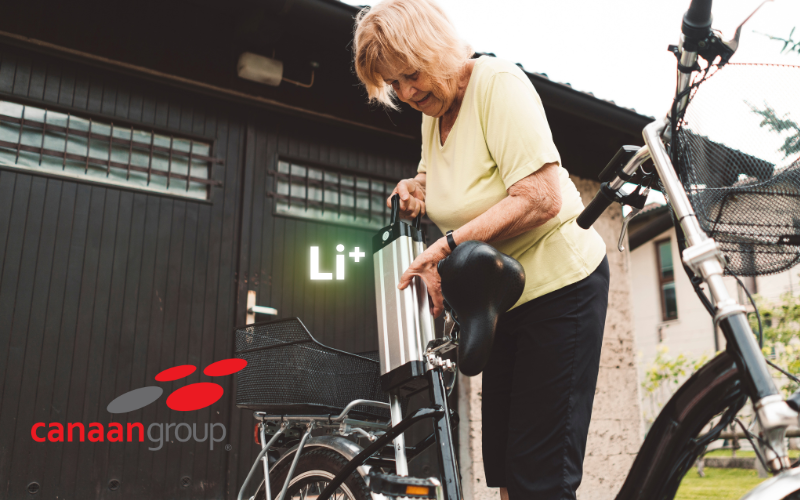In recent years, electric bikes (e-bikes) have surged in popularity, heralded for their potential to offer an eco-friendly and cost-efficient mode of transportation. This surge is backed by various Canadian provinces, which have rolled out incentives and subsidies to make e-bikes more accessible. For instance, British Columbia has introduced income-based rebates on eligible e-bikes from authorized dealers, offering $350 to $1,400 to make e-mobility an affordable option for its residents.
However, the core of e-bikes—the lithium-ion batteries that power them—presents a complex challenge in terms of shipping and transportation. Due to their flammable electrolyte and high energy density, lithium batteries are recognized as dangerous goods (DG). They require careful handling, specialized packaging, and adherence to a myriad of regulations and carrier requirements. This complexity underscores the need for expertise in logistics, as the consequences of mismanagement range from supply chain delays to severe accidents.
The lithium-ion battery market, poised to grow from USD 44.5 billion in 2022 to USD 135 billion by 2031, is predominantly driven by the demand for electric vehicle (EV) batteries. With significant growth expected in Southeast Asia and India, the logistics sector must adapt to new shipping lanes and regulatory landscapes. Unlike lithium metal batteries, which are non-rechargeable, lithium-ion batteries are rechargeable and power a wide array of devices, including e-bikes, necessitating stringent shipping protocols to mitigate risks of overheating and ignition.
Shipping lithium-ion batteries—whether by air or ocean—is fraught with restrictions. Ocean freight, given its capacity for larger volumes and fewer restrictions compared to air transport, dominates international shipping for EV batteries. Stringent regulations apply across the entire supply chain, demanding specialized knowledge for safe and compliant transportation.
The logistics of shipping lithium-ion batteries involves detailed documentation, such as the Dangerous Goods Declaration and material safety data sheets (MSDS), alongside factory tests to ensure the batteries’ resilience to heat, vibration, and more. Packaging protocols are rigorous, requiring non-metallic inner packaging to prevent short circuits and physical damage. Adherence to special marking and labelling guidelines is also required to identify the goods’ nature clearly.
Given the heightened risks associated with lithium-ion batteries, additional insurance coverage is often necessary to mitigate potential liabilities, including damage to adjacent cargo in the event of a fire. Therefore, the choice of a logistics partner becomes crucial. Opting for a freight forwarder or 3PL with proven experience in handling dangerous goods can mean the difference between the seamless integration of e-bikes into the sustainable transport ecosystem and facing the significant repercussions of regulatory non-compliance or shipping mishaps.
As the e-bike movement continues to gain momentum, bolstered by governmental support and consumer interest in green transportation, the challenge of safely and efficiently transporting lithium-ion batteries remains a critical piece of the puzzle. Addressing this challenge head-on, with the proper knowledge and partners, is essential for realizing the full potential of e-bikes as a cornerstone of sustainable urban mobility.
At Canaan Group, we specialize in handling DG cargo. Several of our colleagues hold a DG license that is renewable every two years. If you have questions on shipping e-bikes or anything DG-related, please get in touch with sales@canaangroup.ca or contact us here.


